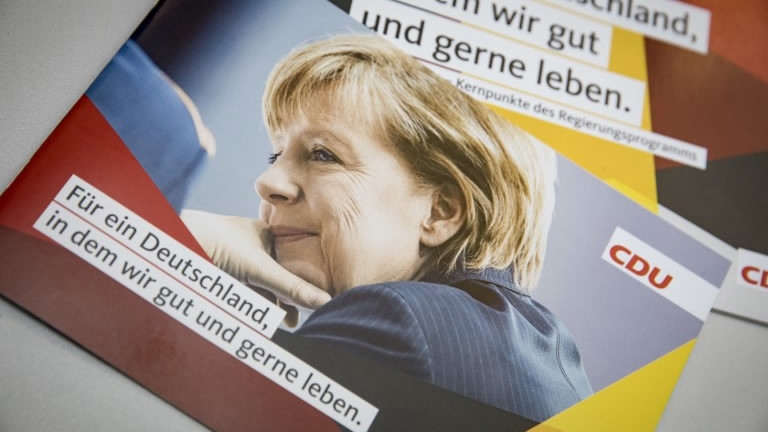German Chancellor Angela Merkel has returned from a three-week Alpine holiday to embark on Saturday on what may be the most bizarre election campaign in the country's post-war history.
After months of studiously ignoring the race for the September 24 election, Merkel will kick off a series of rallies across the country with an hour-long speech to supporters in the western city of Dortmund.
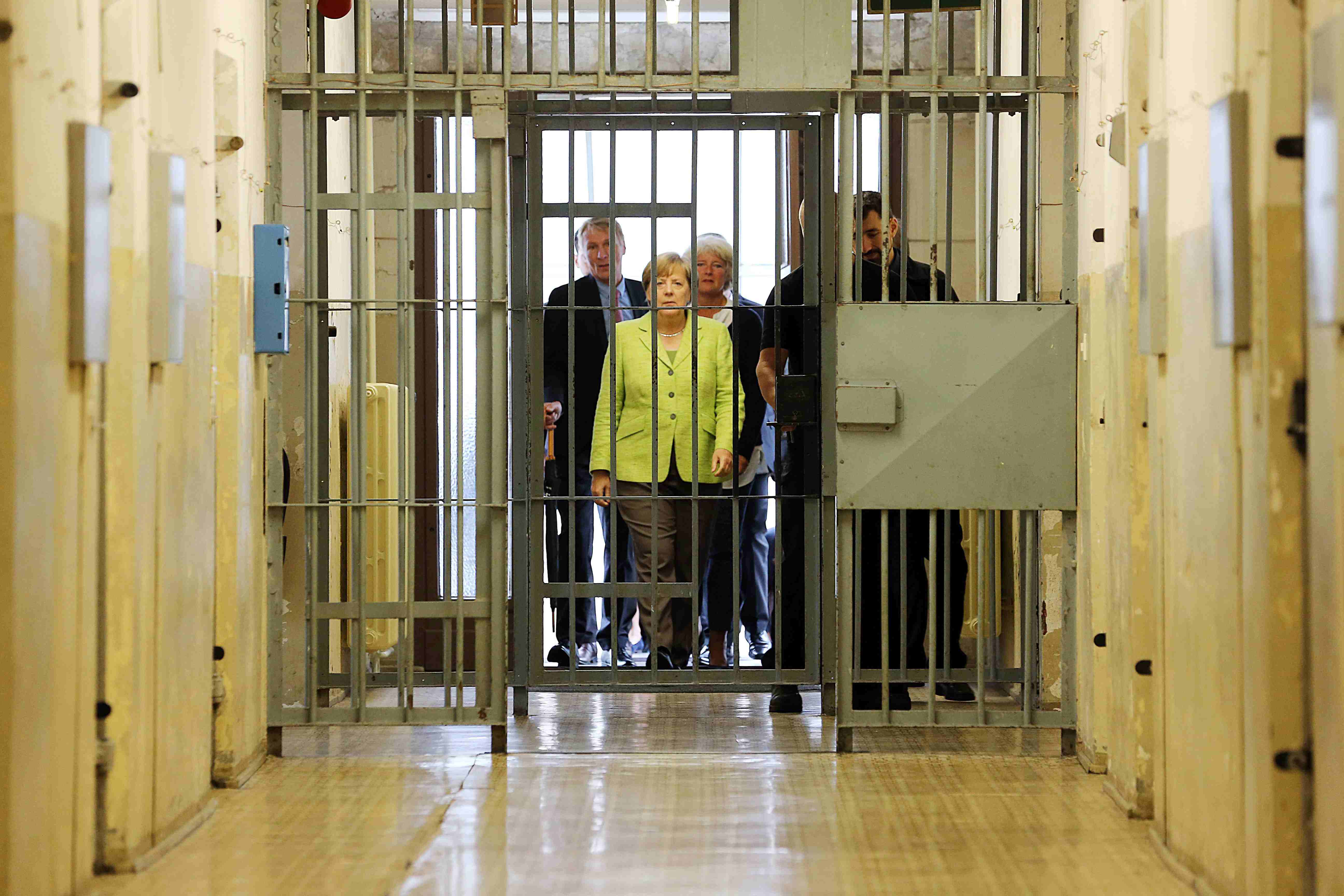
German Chancellor Angela Merkel visits the Berlin-Hohenschönhausen Memorial at the site of a former prison of the East German Ministry of State Security in Berlin on August 11, 2017. /AFP Photo
German Chancellor Angela Merkel visits the Berlin-Hohenschönhausen Memorial at the site of a former prison of the East German Ministry of State Security in Berlin on August 11, 2017. /AFP Photo
But just six weeks out from the EU's top economic power and most populous nation going to the polls, Germans are barely taking notice of the election.
Even after 12 years in power, Merkel, frequently called the world's most powerful woman and Europe's de facto leader, looks set for a fourth term.
Gone are the warnings of her political demise heard at the height of the 2015 refugee influx, when nearly 900,000 asylum seekers entered the country.
Merkel's conservative Christian Democrats (CDU) led their closest rivals, the Social Democrats (SPD), by a 12-to-17-point margin, meaning it would take a political earthquake to shift the field at this point.
"It is probably the strangest election race in the history of the Federal Republic," Heribert Prantl of the national broadsheet Sueddeutsche Zeitung wrote this week.
"There is no wind, never mind a wind of change."
'Shadowboxer'
Merkel's main challenger, SPD leader, and former European Parliament spokesman Martin Schulz, has led what many commentators call a plodding campaign.
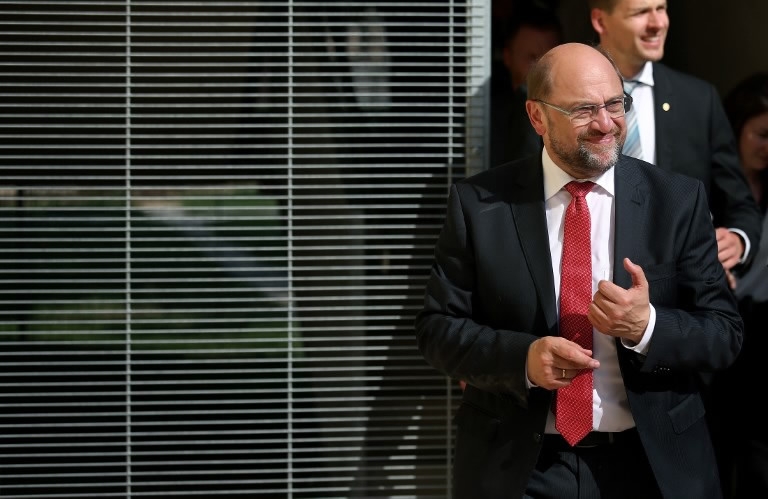
SPD leader and chancellor candidate Martin Schulz visits residents of the multi-generation house in Jena, eastern Germany on August 8, 2017. /AFP Photo
SPD leader and chancellor candidate Martin Schulz visits residents of the multi-generation house in Jena, eastern Germany on August 8, 2017. /AFP Photo
But they acknowledge that there is little mood around for renewal, as Germans look out on a turbulent world unsettled by the US President Donald Trump and UK's Brexit.
After high-drama election campaigns in the US, Britain and France, Germans appear relieved that their race is so low-stakes.
"The German elections are very difficult to understand from a foreign point of view because there's hardly any polarization," political scientist Timo Lochocki of the German Marshall Fund of the US told AFP.
Meanwhile, the frustrated Social Democrats are faced with an enemy who refuses to engage, with German media nicknaming the lonely Schulz the "shadow boxer".
"The SPD can't polarize the campaign alone; the CDU doesn't answer, so (the campaign) is dying," said Lochocki.
He cited three main reasons for German satisfaction with the status quo: the rude health of the economy with solid growth and low unemployment; Merkel's right-left "grand coalition" government creating broad consensus around contentious issues such as immigration and security; and a pact by mainstream parties to shun the political fringe.
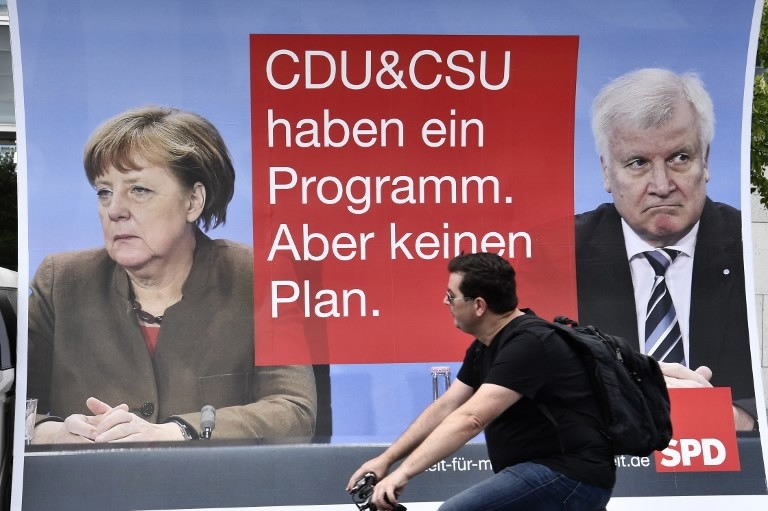
Activists of Germany's social democratic SPD party drive a poster reading "CDU and CSU have a program - but no plan" and showing German Chancellor Angela Merkel and CSU leader Horst Seehofer past the headquarters of the conservative Christian Democratic Union (CDU) party on July 3, 2017, in Berlin. /AFP Photo
Activists of Germany's social democratic SPD party drive a poster reading "CDU and CSU have a program - but no plan" and showing German Chancellor Angela Merkel and CSU leader Horst Seehofer past the headquarters of the conservative Christian Democratic Union (CDU) party on July 3, 2017, in Berlin. /AFP Photo
The CDU has plumped for a soft-focus campaign centered on patriotism and Merkel herself.
The party drew ridicule for its soporific slogan "For a Germany in which we live well and happily", and a campaign poster featuring a young female voter literally asleep in a meadow.
Schulz this month accused Merkel of eroding German democracy with her barely perceptible re-election bid.
"A chancellor who does not tell voters what she intends to do is neglecting her duty and that endangers the future of the country," he warned.
Given she has been in power since 2005, making her the longest-serving leader of any major Western democracy, Merkel still enjoys a remarkable personal popularity rating of around 60 percent – nearly double that of Schulz.
'Curiosities' of race
In a column called "Wander Woman" this week, Rene Pfister of Der Spiegel noted the fascination Germans had with the down-to-earth images of Merkel hiking in gear she has been wearing year after year that were splashed on the pages of newspapers and magazines during her holiday.
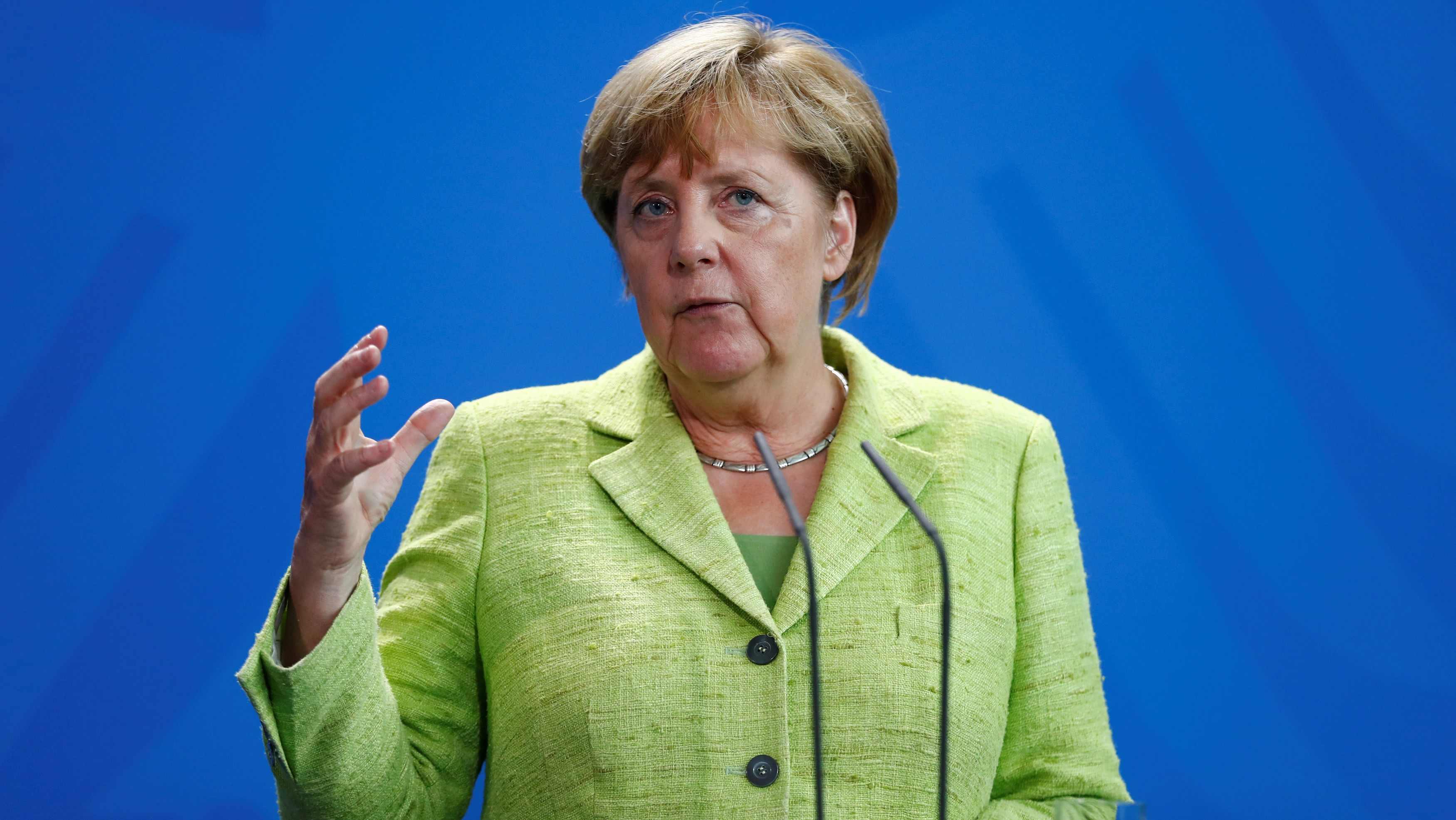
German Chancellor Angela Merkel addresses a news conference at the Chancellery in Berlin, Germany, August 11, 2017. /Reuters Photo
German Chancellor Angela Merkel addresses a news conference at the Chancellery in Berlin, Germany, August 11, 2017. /Reuters Photo
"It is among the curiosities of this election campaign that even Merkel's summer holiday led her poll numbers to climb," Pfister said, noting that Merkel's no-nonsense style mirrored Germans' own view of themselves.
The only source of suspense at this stage seems to be whether Merkel will manage to eke out her first absolute majority to govern alone, or which of three possible smaller parties she would court for a coalition.
Sueddeutsche's Prantl noted the irony that Germany's real political battle - over the post-Merkel era - would apparently have to wait until after the election.
"September starts the clock on a time after Angela Merkel when the fight for the future of the CDU and SPD can begin in earnest," he said.
Source(s): AFP

